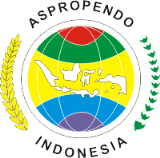PENDAMPINGAN USAHA DUPA BAGI KELOMPOK MASYARAKAT DISABILITAS DI DESA BENGKALA, BULELENG, BALI
Abstract
Bengkala Village in Buleleng Regency has been known as an area that is home to people with a hearing impairment. Their inability to communicate verbally like people in general does not make a group of people with disabilities unable to work. In this community service activity, people with disabilities in Bengkala Village are given training and guidance to produce incense that can be sold to people around and outside the village. Incense as a daily necessity product for the Balinese Hindu community, is a prospective business opportunity to be developed. Understanding the limitations of the people with disabilities, the accompanying method provided is the plasma system. As adopted Law No. 9 of 1995, this assistance was provided with an understanding of the conditions of the community, that's why, the directive approach is applied to community service activities. In its application, a directive approach is applied by adopting a plasma core pattern. Through the plasma method, the community is given technical guidance on production to be able to produce the expected number of products, both quality and quantity, it is about 20 kilograms per day.
Key words: Bengkala Village, business, disability, group, insenceFull Text:
PDF (Bahasa Indonesia)References
Adi, I. R. 2012. Intervensi Komunitas dan Pengembangan Masyarakat sebagai Upaya Pemberdayaan Masyarakat. Jakarta: PT Rajagrafindo Persada.
Anonim, 2019. KEM Kolok Bengkala, Wujudkan Mimpi Masyarakat Adat Bali. Dalam https://www.pertamina.com/en/news-room/news-release/kem-kolok-bengkala-wujudkan-mimpi-masyarakat-adat-bali. Diakses tanggal 23 September 2019.
Apriyani, A. 2018. Ketika Masyarakat Tuli-Bisu Menari di Desa Bengkala. Dalam http://digilib.isi.ac.id/4009/1/masyarakat.pdf. Diakses pada tanggal 23 September 2019.
Kementerian Pariwisata Indonesia. 2018. Desain Startegis Rencana Aksi Pariwisata Halal Provinsi Nusa Tenggara Barat Tahun 2018 – 2019. Dalam http://www.kemenpar.go.id/asset_admin/assets/uploads/media/pdf/media_1568185794_1_DSRA_NTB_Nov_28.pdf. Diakses pada 23 September 2019.
Kolopaking, L. M. 2002. Kemitraan dalam Pengembangan Usaha Ekonomi Skala Kecil/Gurem, Makalah Lokakarya Nasional Pengembangan Ekonomi Daerah Melalui Sinergitas Pengembangan Kawasan. Jakarta.
Maran, R R. 2007. Manusia dan Kebudayaan dalam Perspektif Ilmu Budaya Dasar. Jakarta: Rineka Cipta.
Naser E., et al. 2011. “Effects of positive and Negative Rural Tourism (Case Study: Rural Semnan Province). Journal of Geography and Regional Planning. 4 (2): 63-76.
Nilanjan R., et al. 2012. “Rural Tourism and it’s Impact on Socio-Economic Condition: Evidence from West Bengal, India”. Global Journal of Business Research. 6 (2): 11-22.
Renawati, P. W. 2017. KEM Pertamina Flip: Eksistensi KEM Bengkala Singaraja-Bali Ditinjau Dari Aspek Kebudayaan. UNES Journal of Community Service, 2. (31) June 2017.
Rusyidi, Binahayati dan Muhammad Fedryansah. 2018. Pengembangan Pariwisata Berbasis Masyarakat. Jurnal Pekerjaan Sosial, 1 (3).
Widiastini, N. M. A., Rahmawati, P. I., Andiani, N. D., Parma, I. P. G. 2018. Pengembangan Pariwisata Pedesaan di Kabupaten Buleleng. Seminar Nasional Riset Inovatif 2018 ISBN 978-602-6428-73-8.
Wirawan, I.B. 2012. Teori-Teori Sosial Dalam Tiga Paradigma Fakta Sosial, Definisi Sosial & Perilaku Sosial. Jakarta: Kencana Prenada Media Group.
Yahya, Arief. 2015. Smart Tourism. Konferensi Nasional Inovasi TIK Untuk Indonesia Cerdas. 16 Oktober 2015. Dalam ftp://ftp.itb.ac.id/pub/ISO-IMAGES/linux/eii2015itb/151015%20-%20Paparan%20Menpar%20ITB%20draft%202.pdf. Diakses pada tanggal 23 September 2019.
Refbacks
- There are currently no refbacks.













